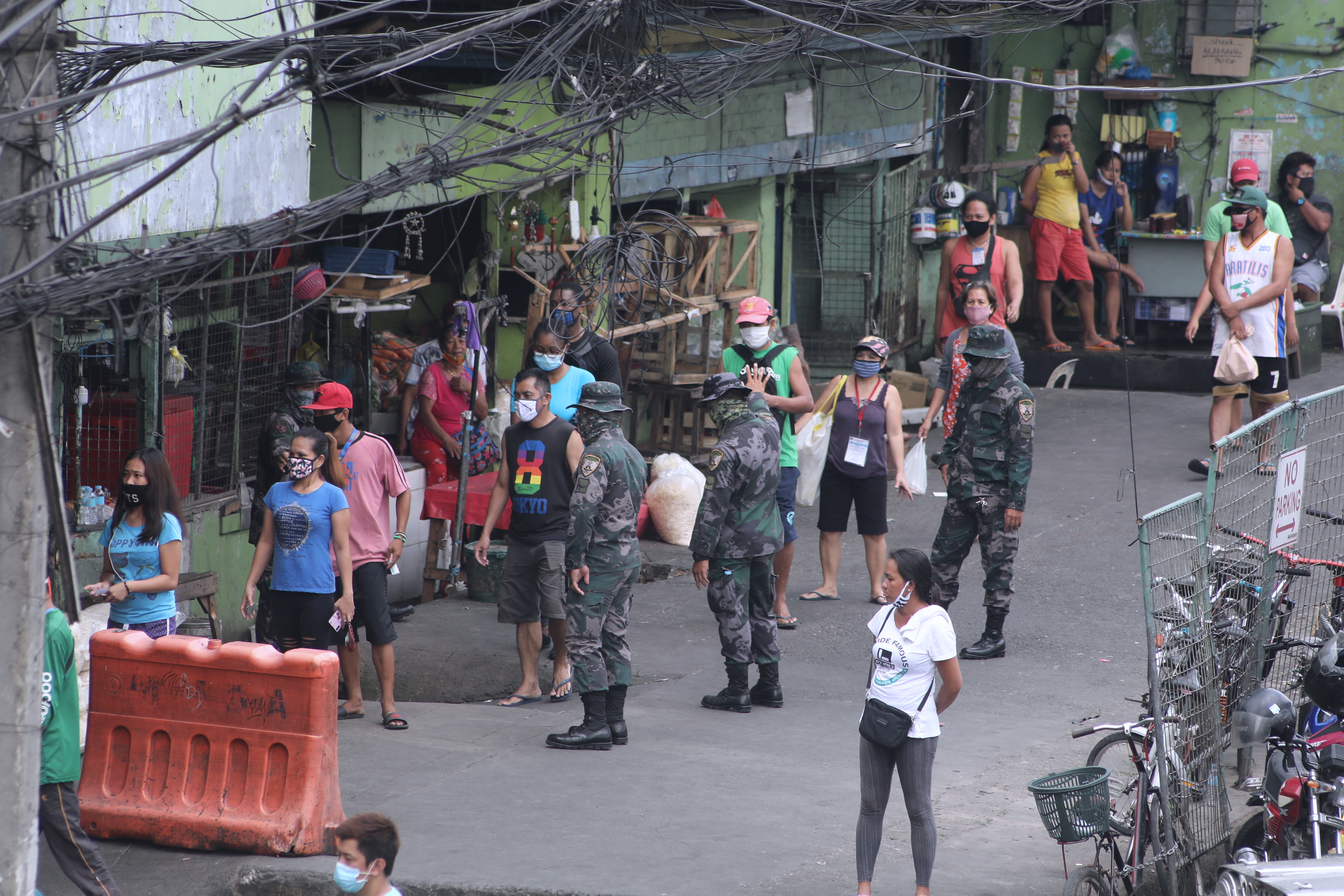Headline
Ordering military to implement ‘stricter’ ECQ is not martial law

FILE: STRICTER DISTANCING. Authorities implement stricter physical distancing at the Balintawak Market in Quezon City on Thursday (April 16, 2020). The Department of the Interior and Local Government recently ordered a stricter implementation of the social distancing measure to control the spread of the coronavirus disease 2019 (Covid-19). (PNA photo by Joey O. Razon)
MANILA – President Rodrigo Duterte has yet to issue any order for the military to implement a “stricter” implementation of the enhanced community quarantine (ECQ) in Luzon and some parts of Visayas and Mindanao, Malacañang said on Monday.
Presidential Spokesperson Harry Roque made this clarification after an internal memo of the Philippine Air Force (PAF) advising troops to “prepare for strict implementation of extensive enhanced community quarantine where the AFP (Armed Forces of the Philippines) will be the overall in-charge along roads and highways” was leaked.
“The President has not actually exercised this extraordinary power of calling upon the military for this purpose,” Roque said in a virtual presser.
Roque, however, said it was only natural for the military to prepare to enforce an “extensive” ECQ upon the President’s orders.
He also said Duterte’s order for the military to implement stricter quarantine protocols should not be likened to martial law.
“Iyan po ay kapangyarihan ng Presidente at hindi po iyan martial law (That is the power of the President and it’s not martial law),” he said.
Roque said the President will not think twice about letting the military takeover since it is allowed under the 1987 Constitution.
“He will not hesitate to call upon the military to enforce the ECQ. That’s the calling out power. If he so decides, he will issue the necessary and corresponding executive issuance,” he added.
On April 17, Cabinet Secretary Karlo Nograles said pronouncement was a “mere warning” to those who would continue to defy the quarantine protocols.
“The President is only trying to emphasize to the people that he also has the ability to ask the AFP and the PNP (Philippine National Police) to help impose orders, if need be. He has that power. So, warning lang sa violators. (It’s a warning to violators),” he said.
Nograles also noted that the 1987 Constitution is “very clear” that Duterte can only enforce a martial rule when there is rebellion or invasion.
Thus, the President would only give soldiers and policemen a “bigger” role in the imposition of the ECQ, should quarantine violations persist, he said.
Under Article 7, Section 18 of the Constitution, “the President shall be the Commander-in-Chief of all armed forces of the Philippines and whenever it becomes necessary, he may call out such armed forces to prevent or suppress lawless violence, invasion or rebellion”.
The Constitution also provides that the President can declare martial law, “in case of invasion or rebellion, when the public safety requires it.”
In a televised national address on April 16, Duterte told the police and the military to get ready to take the lead in the implementation of the ECQ in Luzon, in case the number of quarantine violators continues to rise.
Upset over the reported quarantine violations during the ECQ period, the President said his order would be similar to the declaration of “martial law.”
This week, President Rodrigo Duterte is expected to decide on whether to extend or modify the ECQ which will end on April 30.
He will consider five parameters, which include the “trends in the Covid-19 epidemiological curve, the capacity of the health care system, and the social, economic, and security factors,” in deciding on the fate of ECQ.





















